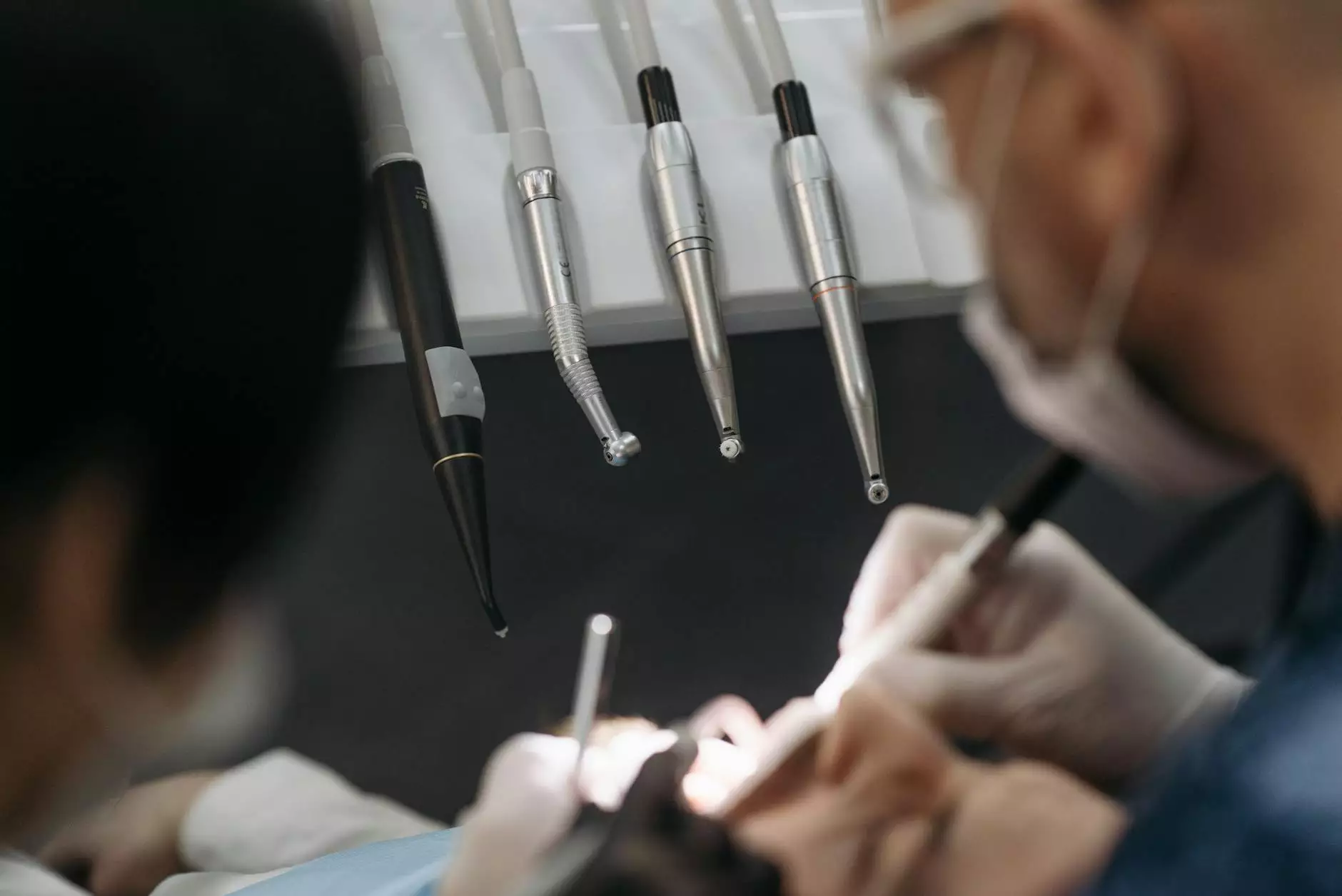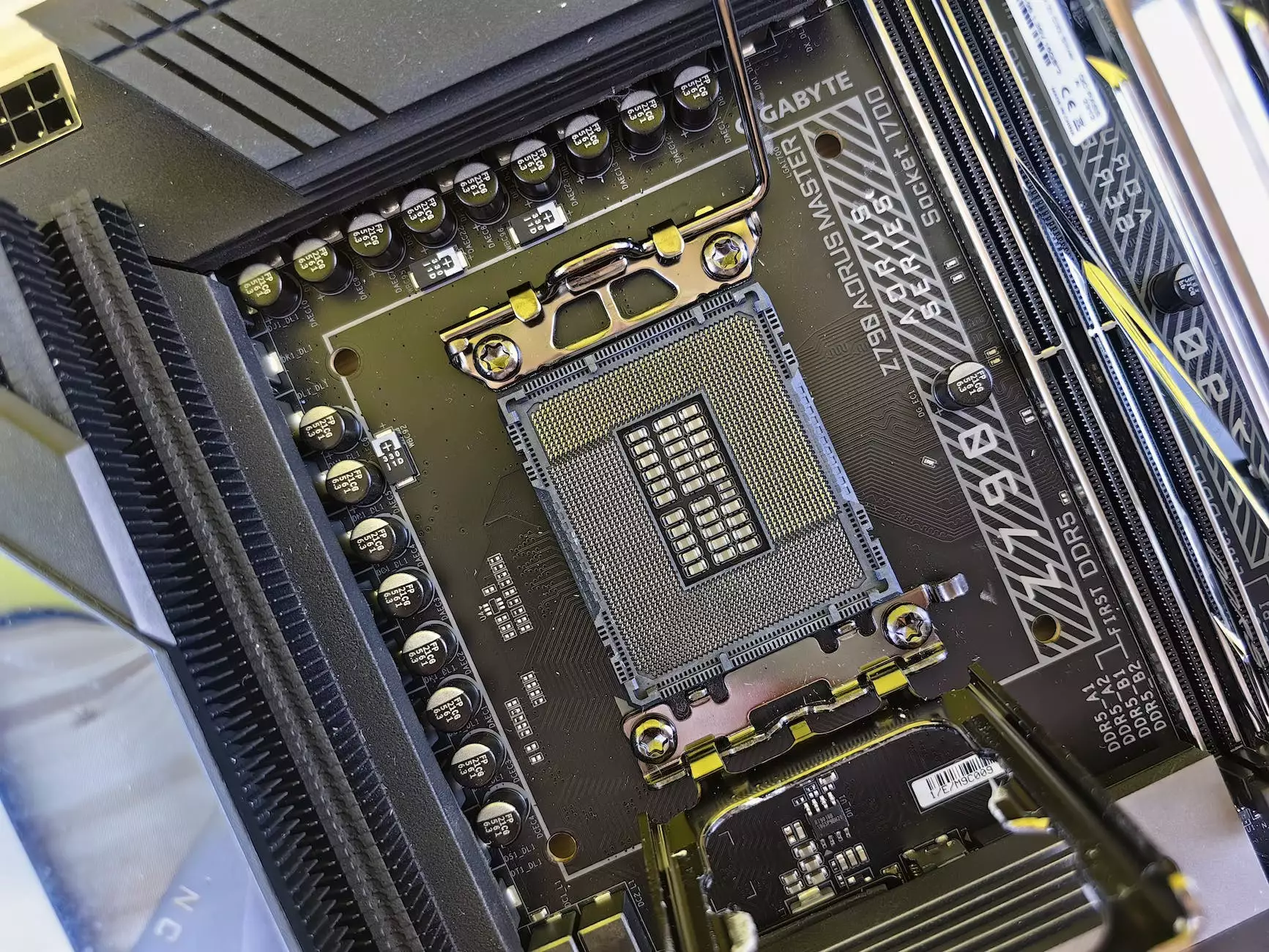Understanding the Critical Role of the ECU Unit in Car: Your Complete Guide

The ECU unit in car is often regarded as the brain of modern vehicles, a sophisticated component responsible for managing engine performance, fuel efficiency, emissions control, and overall vehicle diagnostics. As vehicles become more advanced with digital technology, the importance of a fully functional and high-quality ECU cannot be overstated. Whether you're a car enthusiast, a professional mechanic, or an automotive business owner, understanding the intricacies of the ECU unit in car will empower you to optimize vehicle performance, perform precise diagnostics, and make informed purchasing decisions.
What Is an ECU Unit in Car? An In-Depth Explanation
The ECU unit in car, or Electronic Control Unit, is a compact computer that controls various electronic systems within a vehicle. It collects data from sensors throughout the car, processes this information, and then makes real-time adjustments to different components. Essentially, the ECU acts as the vehicle’s *control center*, ensuring that everything from engine timing to fuel injection operates seamlessly.
Most modern vehicles contain multiple ECUs dedicated to specific functions such as:
- Engine Control Module (ECM): The primary ECU responsible for engine management.
- Transmission Control Module (TCM): Manages gear shifts and transmission functions.
- Anti-lock Braking System (ABS) Control Module: Ensures optimal brake performance and safety.
- Airbags Control Module: Manages deployment and safety features.
- Infotainment and Comfort Modules: Control entertainment, climate, and interior features.
The Functionality of the ECU Unit in Car: How It Works
The fundamental operation of an ECU unit in car revolves around sensor inputs and actuator outputs. Here’s a detailed breakdown of its workflow:
1. Data Collection from Sensors
The ECU constantly receives data from a network of sensors, including temperature sensors, oxygen sensors, throttle position sensors, mass airflow sensors, and many more. This real-time data provides a comprehensive picture of the vehicle’s current status.
2. Data Processing and Decision Making
Using complex algorithms and programmed maps, the ECU analyzes the sensor inputs to determine if adjustments are necessary. For example, if the oxygen sensor detects an excessively rich fuel mixture, the ECU modifies fuel injection parameters to optimize combustion and reduce emissions.
3. Actuator Control and Output Adjustment
Based on the processed data, the ECU sends signals to various actuators such as fuel injectors, ignition coils, and throttle bodies. These adjustments help improve engine efficiency, ensure compliance with emissions standards, and maintain vehicle stability.
Importance of the ECU Unit in Modern Vehicles
The ECU unit’s significance cannot be understated in modern automotive technology. Here are several reasons why:
Enhanced Fuel Efficiency and Reduced Emissions
The ECU precisely manages fuel injection and ignition timing, optimizing combustion and reducing unnecessary fuel consumption and harmful emissions.
Improved Engine Performance
By continuously monitoring sensor data and adjusting control parameters, the ECU ensures the engine runs smoothly, accelerates efficiently, and maintains consistent power output.
Diagnostic Capabilities and Maintenance
The ECU unit in car stores error codes in case of malfunction, facilitating quick diagnosis and repair. This proactive feature helps prevent more severe damage and extends vehicle lifespan.
Safety and Stability Features
Integrated control modules, powered by the ECU, support critical safety systems like ABS, traction control, and stability control, significantly enhancing driver safety and vehicle handling.
Common Types of ECU Units and Their Applications
There are various types of ECU units in cars, each designed for specific functions:
- Engine Control Units (ECU): Regulate engine operation for optimal performance and emissions.
- Transmission Control Units (TCU): Manage automatic transmission shifting patterns.
- Body Control Modules (BCM): Oversee lighting, windows, and central locking systems.
- Infotainment ECUs: Control multimedia, navigation, and communication systems.
- Advanced Driver Assistance System ECUs: Handle sensors and algorithms for collision avoidance, lane-keeping, and adaptive cruise control.
Choosing the Right ECU Unit in Car: Key Considerations
When selecting an ECU unit in car, whether for replacement, upgrade, or tuning, several critical factors should guide your decision:
Compatibility with Vehicle Make and Model
Ensure the ECU is compatible with your vehicle’s year, make, and model. An incompatible ECU can cause malfunction or fail to interface properly with other systems.
Quality and Reliability
Opt for OEM (Original Equipment Manufacturer) parts or reputable aftermarket ECUs known for durability and performance. Quality components reduce the risk of recurring issues.
Performance Enhancements
Some aftermarket ECUs offer tuning capabilities that can increase horsepower, torque, or fuel efficiency. Consider your goals and select accordingly.
Diagnostics and Support
Choose ECUs compatible with diagnostic tools and software to facilitate easier troubleshooting and updates.
ECU Unit in Car Troubleshooting: Recognizing and Fixing Common Issues
Even the most advanced ECU unit in car can encounter problems over time. Identifying issues early and understanding troubleshooting steps can save time and money.
Signs of a Failing ECU
- Check engine light illuminated persistently
- Inconsistent engine performance or stalling
- Difficulty starting the vehicle
- Reduced fuel efficiency
- Erratic idling or acceleration issues
Diagnostic Tools and Techniques
Use OBD-II scanners to read error codes related to the ECU. Professional diagnostics can pinpoint specific faults, such as sensor failures or wiring issues.
Repair and Replacement Procedures
Fixing an ECU may involve hardware repairs, reprogramming, or, in some cases, replacement. Always seek qualified technicians, especially for reprogramming or firmware updates to prevent further damage.
Upgrading and Tuning the ECU Unit in Car for Better Performance
For automotive enthusiasts and tuners, optimizing the ECU unit in car can unlock significant performance gains. This process, known as ECU tuning or remapping, involves modifying the software parameters to enhance power output, throttle response, or fuel economy.
Key points for tuning include:
- Using professional tuning software and hardware tools
- Ensuring compatibility and avoiding warranty voids
- Testing thoroughly after modification
- Understanding local emissions regulations and legal restrictions
Where to Source High-Quality ECU Units in Car
Reliable sourcing is crucial for maintaining vehicle integrity and performance. 1autoparts.com offers a comprehensive range of genuine and high-quality ECU units suitable for various makes and models. Their extensive inventory, expert support, and competitive pricing make them a trusted partner for both individual customers and professional garages.
Future Trends in ECU Technology
As automotive technology advances, ECUs are becoming even smarter and more integrated. Trends include:
- Increased use of artificial intelligence for predictive maintenance
- Enhanced connectivity with the Internet of Things (IoT)
- Advanced security measures to prevent hacking
- More seamless integration with autonomous driving systems
These developments promise safer, more efficient, and more personalized driving experiences, reinforcing the importance of a top-quality ECU unit in car.
Conclusion: Maximizing Vehicle Performance with a Robust ECU Unit
The ECU unit in car is undeniably the heart of modern automotive technology, enabling vehicles to run efficiently, safely, and reliably. Whether you’re maintaining your current vehicle, upgrading for better performance, or managing repairs, understanding the essential role of the ECU empowers you to make informed decisions. Ensure you source high-quality components, stay vigilant for signs of malfunction, and leverage professional services when needed.
For premium ECU units and expert advice, 1autoparts.com is your trusted partner in the automotive industry. Invest in the right ECU today and experience the difference in your vehicle's performance, safety, and longevity.









